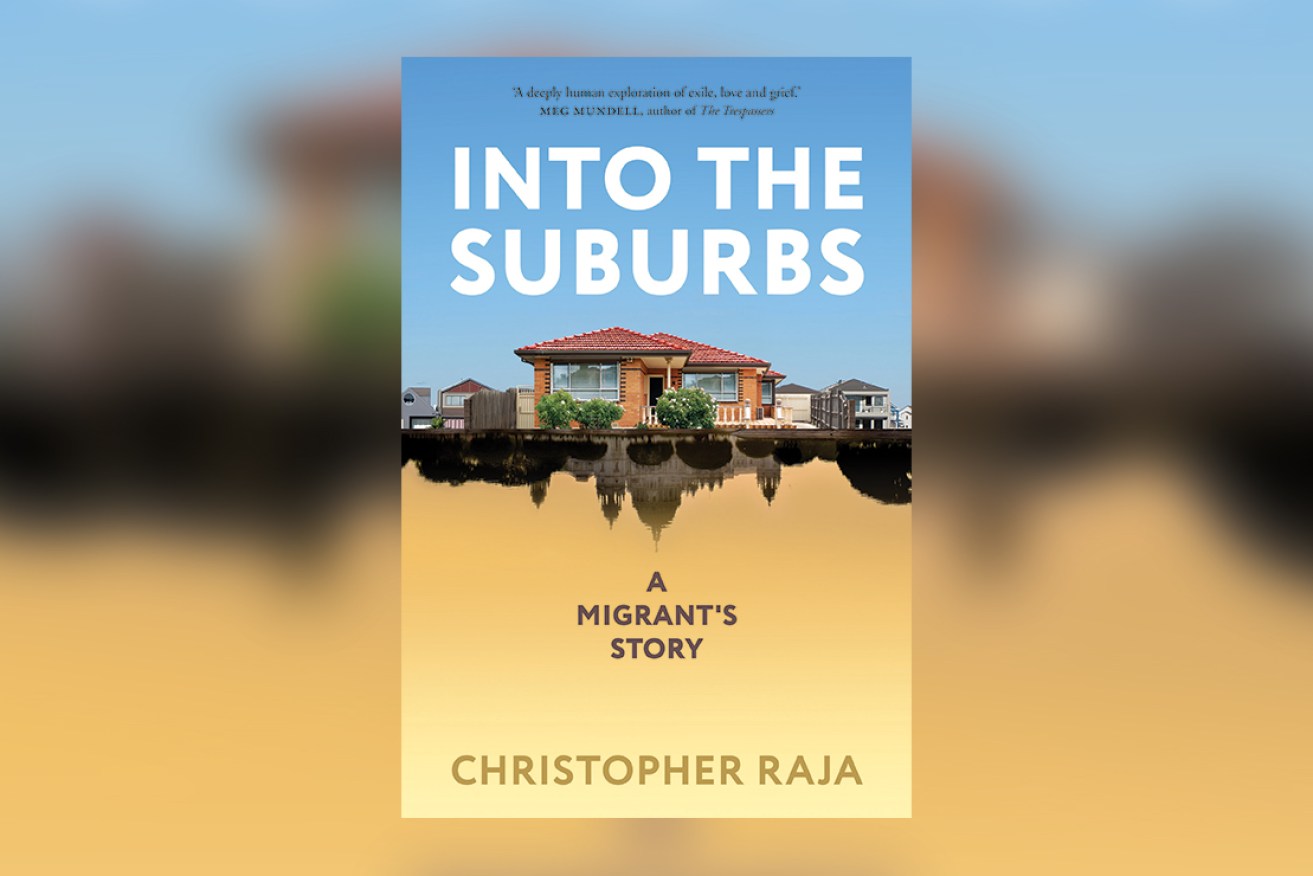Book review: Into the Suburbs
As part of Writers SA’s literary criticism series A Year in Review, Royce Kurmelovs reviews an expansive memoir that has much to say on the interaction of race and class, and on suburbia itself.

Depending who you ask, suburbia is a destination that can mark either the beginning or end of a life. For Christopher Raja, author of Into the Suburbs, it perhaps marked both.
Raja’s memoir retells the early period of the author’s life after his father packs up the family and moves them from Calcutta to the suburbs of Melbourne. The first half of the book is dedicated to the clash that comes with this transition. The story here will be broadly familiar to anyone from a migrant family, and especially those whose families have survived other forms of colonialism elsewhere.
As a child, Raja is not equipped to grapple with these issues and he is immediately targeted by violent bullies for being different. This personal struggle with the uglier aspects of working-class life as it intersects with race mirrors the struggle of his parents to gain a foothold in their new home.
If they sought to escape the class system of India for a “classless society”, they find Australian capitalism a heavily stratified society that is, in some ways, worse than the one they left behind. Both parents struggle to have their qualifications recognised, as if their previous life has been erased, and his mother is forced to take a factory job of the variety that grinds a person down to a nub through relentless physical labour.
Each of these narrative threads work to capture both the direct and indirect psychological marks Australian society leaves on new migrants as they walk the line between integration and assimilation. Where many new arrivals dreaming of upward social momentum seek friendship, respect and acceptance, Australian society answers with demands they “fit in”. With time, this conditions an individual into behaving in ways they may not have otherwise chosen, for reasons they can’t quite explain.
Raja explores the consequences of this dynamic in the strategies his parents ultimately deploy to cope and the symbolic tension it creates within their marriage. If his father – who has idealised Australian society – remains steadfast and unyielding in his desire to leave India behind, his mother seeks to maintain her connection to the homeland through regular trips back. The result is that while his mother slowly finds balance, for Raja and his father, suburbia becomes a lonely limbo.
The book shifts gear during its second half as the author shows off his descriptive prose. In one sequence, Raja draws a loving sketch of life in Keysborough where the Dandenong Ranges stand in the distance, a testament to the material aspirations of his parents. There are the “curious” paperbark trees, the air that smells like smoke in the autumn, the need for antihistamines in the spring time and the melting asphalt of summer. In this environment children play, washing is hung and driveways are mercilessly swept, all on a strict regimen.
This, however, masks the growing sense of sadness, alienation and anomie being experienced by Raja’s father, whose singular focus has been on achieving a better life for his family through sacrifice and dedication. His death in the closing chapters marks the climax of the book, as it plunges the family into grief and yet more uncertainty.
As memoir, Into the Suburbs shares much with the book series Growing Up in Australia, which sought to depict the different challenges and triumphs of coming of age in this country. Raja’s work is, however, more expansive in scope than a bravely told coming-of-age story. The author also has much to say on the interaction of race and class, and on suburbia itself as a place deserving of its own stories.
Centring working-class suburbia in this way is not to be overlooked, given the usual preference is to gloss over these spaces and the people who call them home for more romantic settings. Together this makes Into the Suburbs a distinct tale about what it means to be young and adrift in a changing Australia.
Into the Suburbs is published by University of Queensland Press.
Royce Kurmelovs is an Adelaide freelance journalist and author of works such as The Death of Holden (2016) and Just Money (2020). He will be a guest at Adelaide Writers’ Week this Sunday, speaking in a session with author Rick Morton on The Meaning of Money.
——–
A Year in Review is an initiative by Writers SA, with assistance from the Australia Council of the Arts, to produce a series of book reviews published in InDaily over 12 months.
The reviews will focus on titles published during the pandemic, highlighting the work of Australian authors and publishers during this difficult time for the sector, and giving literary critics an outlet for their work that supports a strong culture of reading.
See previously published reviews here.




